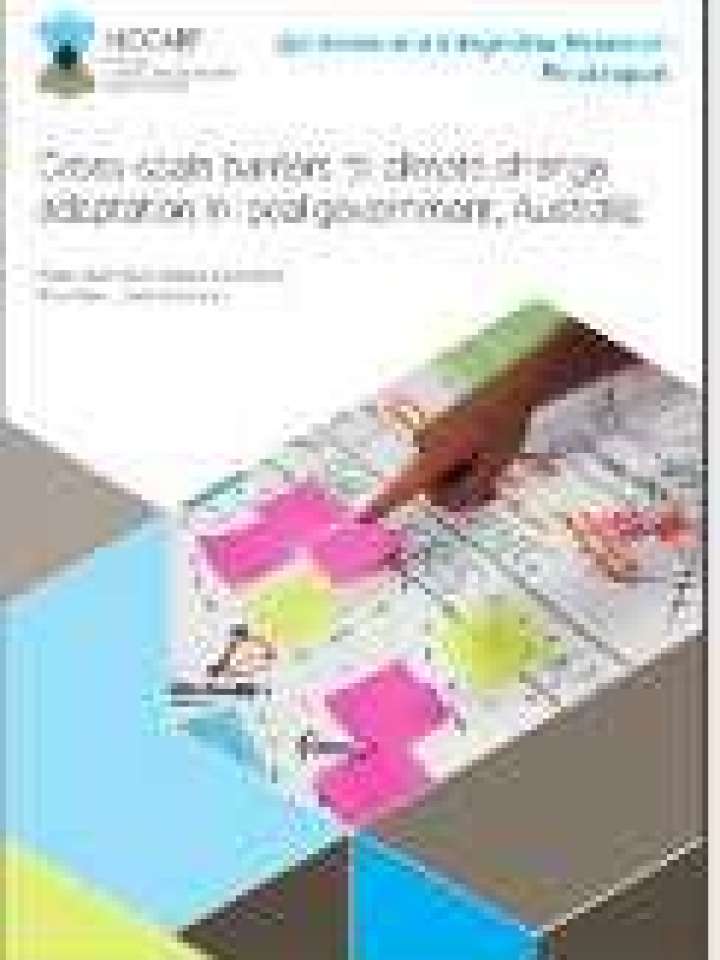Cross-scale barriers to climate change adaptation in local government, Australia: final report
This report documents a study aimed at identifying cross-scale barriers to planned adaptation within the context of local government in Australia, and the development of enabling actions to overcome these barriers. It presents a background review of common cross-scale barriers within the local government context in Australia and internationally, followed by an outline of the theoretical and conceptual framework underpinning the research. Section 4 presents a background to the regulatory context as well as the types of adaptation funds/programs that have supported local government in adaptation planning to date in Australia. Section 5 outlines the methodology and activities undertaken to gather data through out the project. The results from the project activities are presented and discussed in Section 6, in two sub-sections, which focus on the barriers and underlying causes, then the enabling actions to overcome these barriers. Future research directions, together with summary and the conclusions, bring the report to a close.
The report identifies key barriers falling into four main thematic areas: (i) a poor understanding of the risks, limited access to and the uncertainty of climate change impact related information; (ii) an inconsistent governance structure, coordination, communication and leadership between both the vertical tiers and horizontal levels of government; (iii) an inconsistent problem definition and appropriate climate change adaptation framework to use for planning; and (iv) competing priorities due to limited operational resourcing, such as staffing and funding, to plan and implement responses.
Explore further
